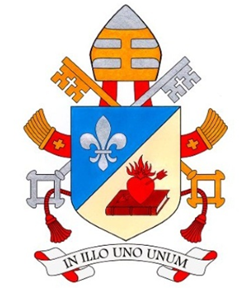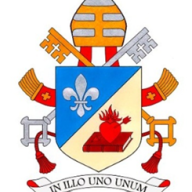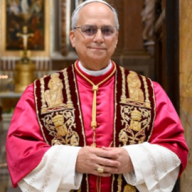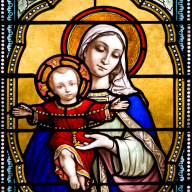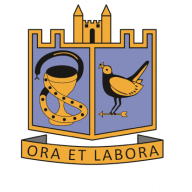Today’s first reading describes how Paul and Barnabas provided for the continuing needs of the local church as they moved from one place to another on their apostolic mission. “In each of these churches they appointed elders, and with prayer and fasting commended them to the Lord in whom they had come to believe” The word ‘elder’ in Greek is ‘presbuteros’ which gives rise to our word ‘presbyter’ or ‘priest’. In the New Testament the word ‘hiereus’ (in Latin ‘sacerdos’) is applied only to the priests of the Old Covenant, or to Christ himself as the high priest of the New Covenant. Vatican II teaches us that all the baptised share to some degree in the priesthood of Christ by virtue of being united to him in baptism but that some are called to share in a special way, through the laying on of hands in ordination, in the ‘ministerial priesthood’. This is what we see in today’s reading from Acts of the Apostles. Under the leadership of the person left in charge (‘episkopos’ or ‘bishop’) they are to lead and nourish the flock on the Word of God and the Bread of Life. This authority and power is passed on from one generation to another through the laying on of hands in ordination, dating back to the Apostles. This is called ‘The Apostolic Succession’ and is shared by Eastern Orthodox Christians but was interrupted in the Churches that arose at the time of the Reformation. This is the reason why Catholics are not permitted to receive Communion in Anglican or Free Churches but can do so, under certain conditions, in Orthodox Churches.




